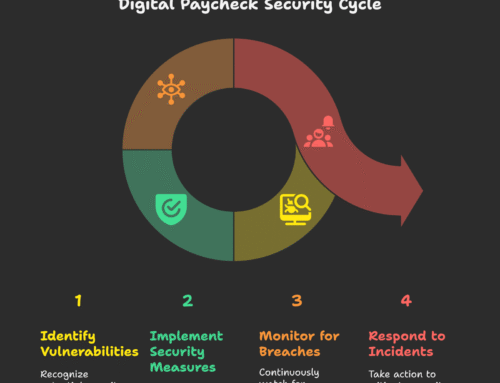Lately, candidates in a number of fields are spoiled for choice when it comes to choosing where they want to work. For organizations looking to grow their teams, identifying talent and getting them into an interview is the first challenge. The next – and sometimes underestimated – hurdle is effectively communicating all the aspects of a role, and positioning the company in the best light possible.
In the technology, engineering, and pharmaceutical fields, the task of recruiting specialists such as senior developers and data scientists can be particularly challenging as they’re heavily in demand. According to Mark Maclean, Senior Director of Montréal International, hiring managers and recruiters these days might need to step up their game if they’re looking for top talent in technology.
“Talented I.T and A.I specialists certainly aren’t hanging out in droves, waiting to be offered a position. It’s hard enough to get in touch with them, and when you do, you’ll need to have a pretty convincing offer,” explains Maclean.
To increase acceptance rates on job offers, consider the following:
1. Don’t forget the second half of your mission
Assessing candidates is a key part of recruiting. Between sorting through applications, setting up meetings, conducting background checks and asking questions, it’s easy to forget that candidates are also interviewing you (the company or role). Make no mistake, in many fields, candidates may have several offers on the table by the time you get around to meeting them. Don’t forget that half of the job includes winning over the best candidates by clearly communicating the job, and showcasing the potential for growth within a company. Keep this in mind when managing the amount of time you spend evaluating candidates versus pitching to them.
2. Understand what candidates want
Sure, everyone wants a solid paycheck, but if you lead with salary, you could fail to convince candidates that the job is for them. In technology and engineering fields in particular, people are increasingly looking to work on dynamic projects that have some kind of positive social or environmental impact. They’re looking for work that is challenging and meaningful to them as a priority. It’s important to let people know why this role is important to the company and even to society, and the kind of problems their work will solve.
3. Know your stuff inside and out
Hiring managers and recruiters who only have a general knowledge of a role or field might not be able to connect with candidates or sell a position the way someone with a similar educational and professional background can. For example, the world of software development comes with a considerable industry jargon and specific knowledge of various platforms and programs – some of which can be difficult for recruiters to communicate if they don’t have first-hand knowledge of what they’re talking about.
For Sarah Groom, the Account Manager for Pharmaceutical and Biotechnology at Groom & Associates, industry-specific knowledge is a vital asset for recruiters. She says, “It’s about more than just speaking their language. If you yourself have studied and worked in a similar role and field, your connection with the candidate, and understanding of their world and what they’re looking for is that much stronger.”
If you aren’t able to really get on a candidate’s level and relate to them professionally, your ability to successfully pitch a position might be affected.
4. Pitch candidates on company culture
Cultural fit is important, as candidates who feel they can relate to the company culture tend to stay on much longer than those who don’t. Make sure to communicate how the role works in terms of teamwork, communication, and management hierarchies. Moreover, shed light on what the company offers in terms of work-life balance, bonuses, flexible schedules, and other aspects such as the importance of transparency and equality – all important when it comes to selling culture.
5. Employ a variety of selling resources and approaches
Creating compelling job descriptions for online job boards and company websites is one way to sell a role. Other approaches include hosting meetups, and getting current employees to attract new candidates with referral programs. If attracting talent is just one aspect of an already complex Human Resources role, consider turning to outside recruitment firms, as they make recruiting and showcasing roles their key focus.
In competitive industries, hiring managers and recruiters must work overtime to make offers as appealing as possible in order to attract high-quality candidates. Deep industry knowledge, more effective communication, and using resources such as specialized recruitment agencies are all strategies that can help you get candidates more excited about the opportunities being presented to them.







Leave A Comment